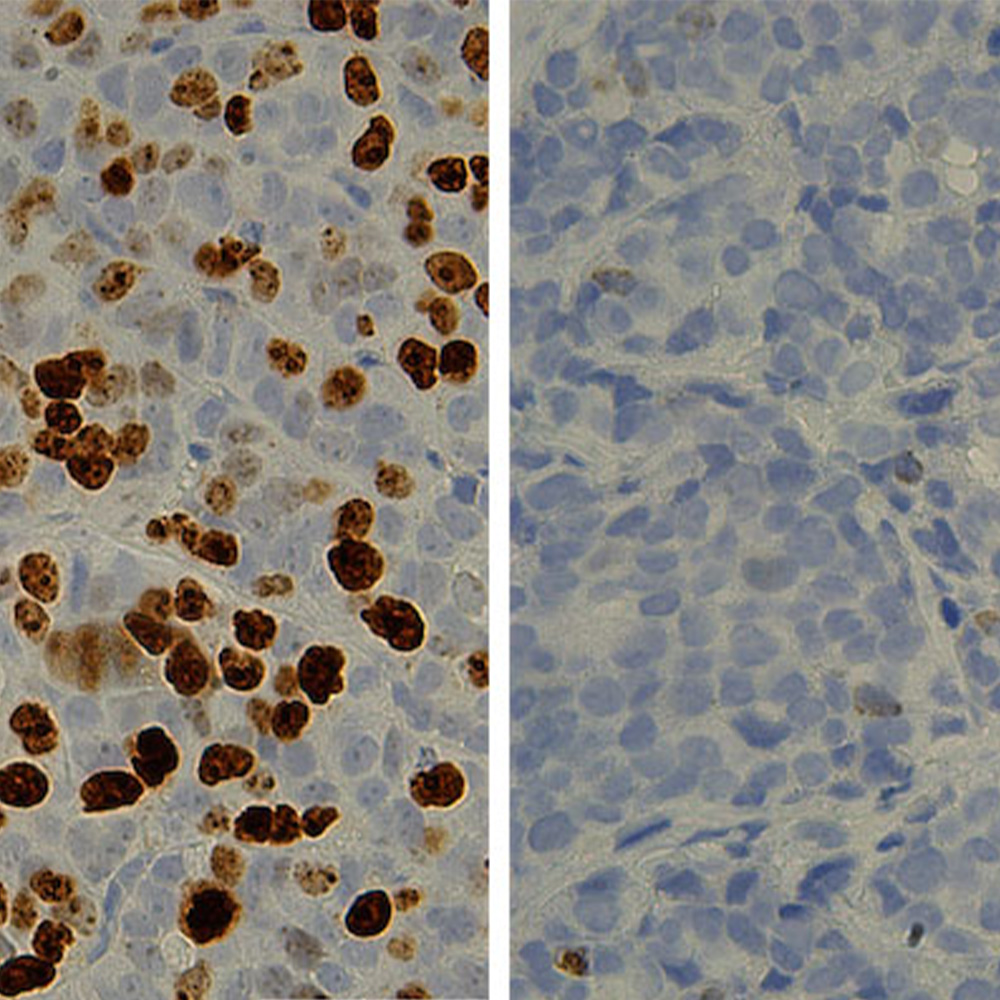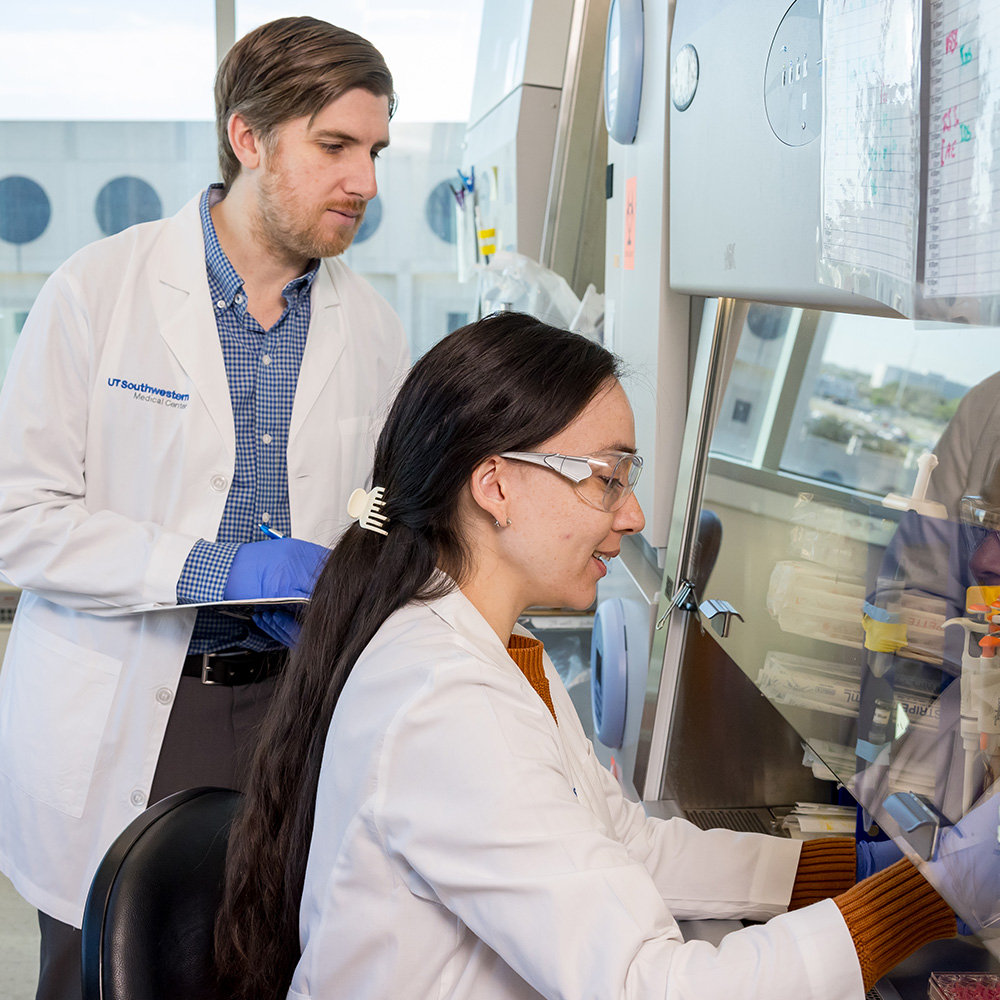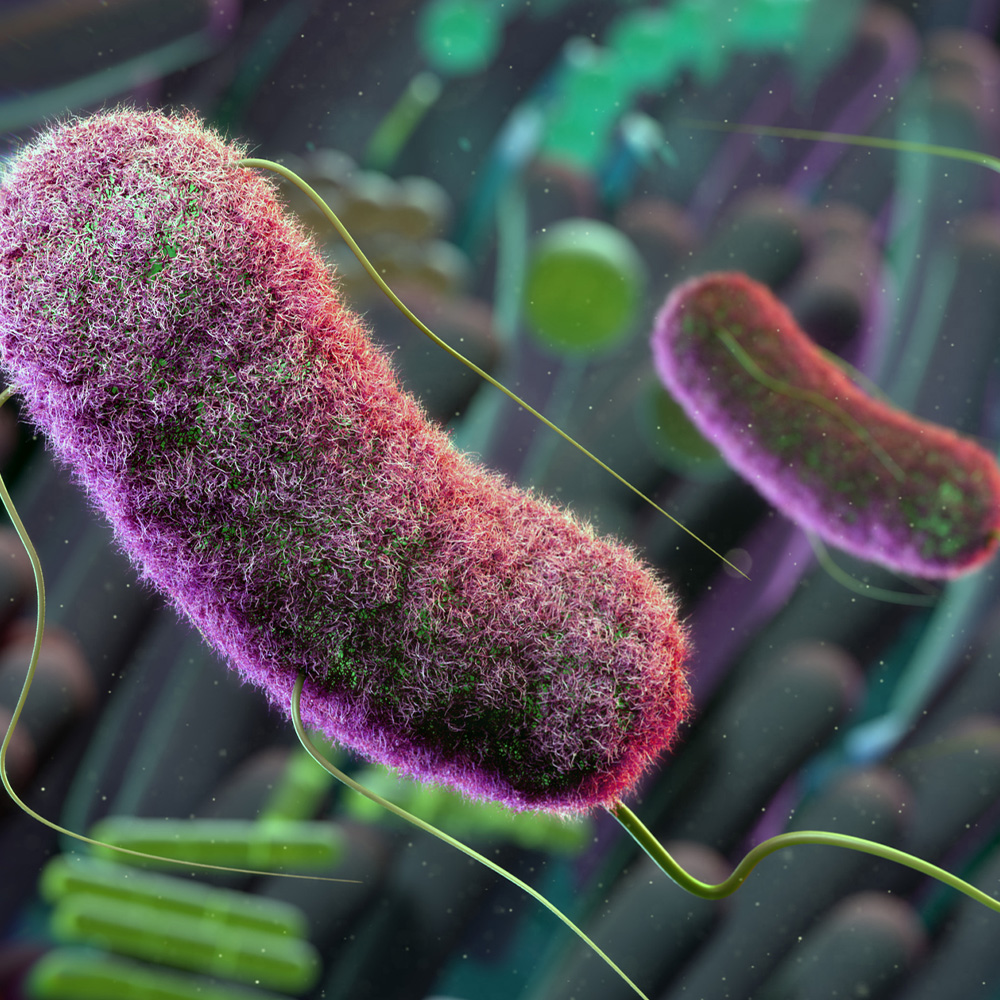PIAS1 may offer new targets for blood cancer therapies
Researchers with the Harold C. Simmons Comprehensive Cancer Center at UT Southwestern Medical Center have been able to characterize interactions inside cells that they hope could lead to targeted treatments for lymphomas and other blood cancers.
Dr. Pier Paolo Scaglioni, Associate Professor of Internal Medicine, and his lab previously showed that a protein called PIAS1 is involved in lung tumor development through its ability to degrade the PML tumor suppressor.
In a new study appearing in Cell Reports, Dr. Scaglioni’s team explains how PIAS1 also plays an important role in the regulation of MYC, another gene implicated in a wide range of human cancers. There are currently no drugs available to target MYC, so the discovery of new cellular networks that may present an Achilles’ heel for MYC-driven tumors is a high priority in cancer research explained Dr. Andrea Rabellino, first author of the manuscript.
The researchers found that PIAS1 is required for MYC-dependent cancer cells, such as B-cell lymphomas, lung and breast cancers, to survive and reproduce. Therefore, Dr. Scaglioni’s team concluded that the activity of PIAS1 may represent a therapeutic target in MYC B-cell lymphomas, and potentially other MYC-driven tumors.




